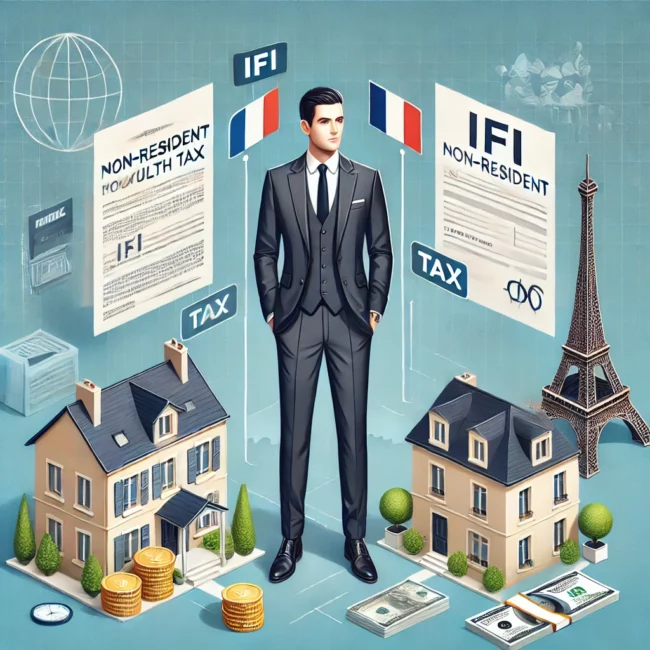Are you a non-resident property owner in France or abroad, wondering about your IFI tax liability? Navigating French tax law can be challenging, but compliance is essential to avoid penalties. In this article, we’ll guide you through the key aspects of IFI tax and provide expert insights to help you make informed decisions.

What is IFI tax, and who is liable?
Taxation is the price we pay for civilization. — Supreme Court Justice Oliver Wendell Holmes Jr., 1927
How is tax residence determined?
Domicile for tax purposes in France is initially determined in accordance with French domestic law. However, a tax treaty between France and the country of tax residence may apply specific criteria to establish this domicile. This may result in taxation being shared between the two countries.
If you’re considering setting up a company in France, it’s essential to understand how this might impact your tax obligations. Our company’s setting-up services can help guide you through the process and ensure compliance with French tax laws.
Tax authorities are increasingly using data and digital technologies to improve tax compliance and reduce tax evasion. — OECD, 2020
Special situations to consider
- Spouses who are separated from property and do not live under the same roof are subject to the IFI separately. This also applies to spouses awaiting divorce or legal separation who have been authorized to live separately by the judge.
- Adult children attached to their parents’ tax household may be taxed separately for the IFI.
- Non-residents are taxed solely on their real estate assets and rights located in France, as well as shares in companies or organizations representing a value linked to these assets.
These special situations can have a significant impact on your IFI tax liability, so it’s essential to understand how they apply to your specific situation. If you’re dealing with debt recovery issues related to your property, our debt recovery services can provide assistance and help you navigate the complexities of French debt recovery laws.
Transferring tax residence to France
Taxpayers should consider the tax implications of their property holdings. Professional advice can ensure compliance with tax laws. — KPMG, 2022
Taxable assets and exemptions
- Built property
- Property under construction
- Non-built property (building land, agricultural land, etc.)
- Rights in rem in immovable property (usufruct, right of use, etc.)
- Shares in companies that directly or indirectly hold property or rights in immovable property
- Property assets relating to the taxpayer’s professional activity are fully exempt.
- Certain types of property may qualify for partial exemption, such as woodland and forests, shares in forestry groups, and rural property leased under long-term leases.
Understanding these exemptions and deductions can help you minimize your IFI tax liability. For personalized tax assistance, whether as an individual or a corporate entity, our tax assistance services can help navigate the complexities of French tax law.
Debts and deductions
Filing and payment obligations
- The IFI form must be fulfilled at the same time as the income form(s) for taxpayers who declare income.
- Non-residents may be required to appoint a representative in France to receive communications relating to the assessment, collection, and litigation of the IFI.
Get expert guidance from My French Lawyer
Don’t let IFI tax complexities overwhelm you. At My French Lawyer, our registered lawyers are dedicated to providing expert guidance and support to non-resident property owners. Whether you need help with tax compliance, debt recovery, or business and commercial issues, they are here to assist you. Contact us today to learn more about how registered lawyers can help you navigate the complexities of IFI tax and ensure your peace of mind.